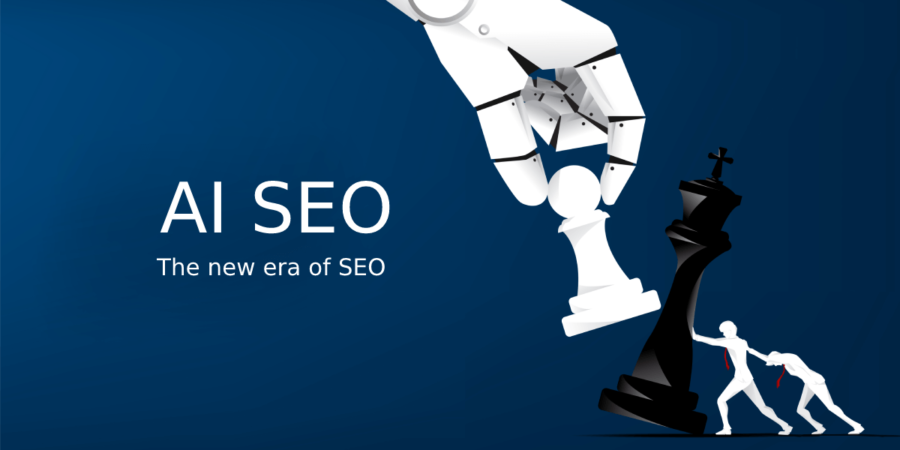Introduction:
In the ever-evolving landscape of online marketing, search engine optimization (SEO) remains a critical factor in ensuring the visibility and success of a website. With the rapid advancements in artificial intelligence AI in SEO technology, SEO has seen a profound transformation. In this blog post, we’ll delve into the role of AI in SEO, its applications, and how it’s changing the way we approach optimizing websites for search engines.
The Role of AI in SEO:
Artificial intelligence AI in SEO has become an indispensable tool for SEO professionals, webmasters, and digital marketers. AI algorithms can process vast amounts of data and perform complex tasks, helping to enhance SEO strategies in several key ways:
- Keyword Research and Analysis: AI tools can identify relevant keywords, assess their competitiveness, and suggest new keyword opportunities based on search trends and user behavior.
- Content Optimization: AI-driven content analysis tools can assist in creating high-quality, engaging content by offering suggestions for improvement, optimizing keyword usage, and ensuring readability.
- Ranking and Performance Monitoring: AI can continuously monitor a website’s ranking, track changes in search engine algorithms, and provide insights into performance metrics, helping SEO professionals make data-driven decisions.
- User Experience (UX) Optimization: AI helps improve UX by analyzing user behavior on a website, identifying issues, and suggesting improvements to enhance the overall user experience.
Applications of AI in SEO:
- Voice Search Optimization: With the rise of voice-activated devices and virtual assistants, AI-driven SEO is crucial for optimizing content for voice search queries.
- Local SEO: AI helps businesses tailor their local SEO efforts by analyzing location data, optimizing Google My Business profiles, and ensuring local relevance.
- Link Building: AI can identify potential link-building opportunities by analyzing websites, their content, and their relevance to your niche.
- Content Generation: AI-powered tools can assist in generating high-quality, relevant content and even automatically updating existing content to maintain its relevance.
- Predictive Analytics: AI can predict future SEO trends and assist in preparing for algorithm changes and industry shifts.
Challenges and Considerations:
- Algorithm Changes: AI-driven SEO requires staying updated with evolving search engine algorithms, as AI can be affected by algorithm updates just like traditional SEO.
- Data Privacy: When using AI tools, it’s essential to be aware of data privacy and security concerns, especially when handling sensitive user information.
- Ethical SEO Practices: While AI can automate many tasks, ethical SEO practices, such as avoiding black hat techniques, must remain a priority.
- Content Quality: While AI can generate content, it’s crucial to maintain the quality, uniqueness, and relevance of the content created.
Conclusion:
AI has reshaped the SEO landscape, offering unprecedented capabilities for optimizing websites and improving online visibility. Incorporating AI into your SEO strategy can provide valuable insights, save time, and enhance the overall performance of your website. However, it’s essential to use AI tools responsibly, stay informed about industry changes, and prioritize ethical SEO practices. As AI continues to evolve, those who harness its power in SEO will have a competitive edge in the digital marketplace.

